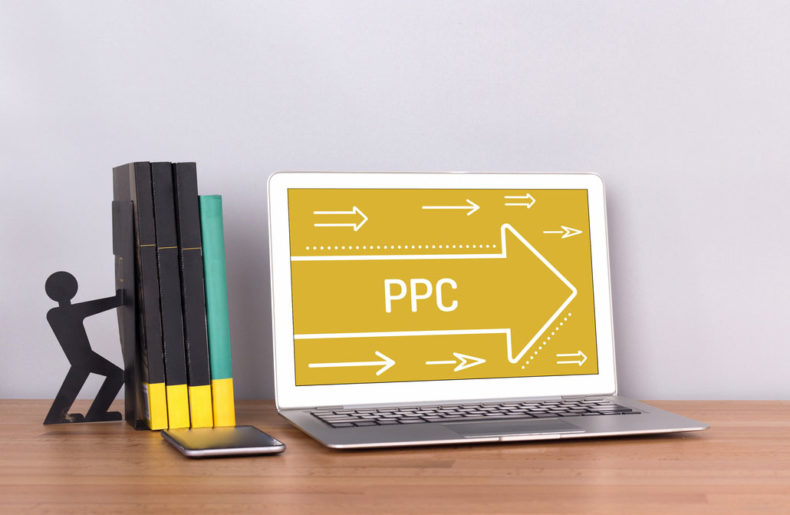PPC is the one true way to bring traffic to an offer overnight.
Its efficiency gives it tremendous power. However, it also has a daunting learning curve. PPC campaign performance must be uniformly high to keep associated costs down.
And PPC alone can easily be overestimated. Paid traffic is a tactic, not a strategy. To achieve its greatest value, it must be aligned with the overall vision of your sales department.
Where Most PPC Campaigns Fall Short: Sales Strategy
Even the best-optimized campaigns can suffer from logical errors that hold them back.
One of the most common of these is the assumption all PPC should target new leads.
Yes, PPC is effective for introducing fresh leads to your brand. However, there are serious drawbacks to only using PPC to attract top of the funnel users:
- Decision-makers further in the buying process also use search to inform their choices.
- Those decision-makers will consistently be served search ads that aren’t relevant to them.
Expanding PPC to a “Whole Funnel” Mindset
Paid traffic can enhance user experience at any stage in the buyer journey, not just the start.
 These approaches will help you expand your horizons:
These approaches will help you expand your horizons:
- Identify Stage-Specific Keywords
You have content specific to every stage of the buyer journey. Now, you need campaigns that help lead users to that content. Look at the ways searches become more narrow, specific, and context-aware as consumers learn more about the business problem, then target those keywords.
- Develop Ad Groups Focused on Just One Keyword
Both your user experience and your ad’s Quality Score are impacted by the relevance of your ad copy. With that in mind, it’s essential to structure your campaigns so each ad is triggered by one keyword and one keyword only. This ensures greater consistency in how users encounter ads.
- Use Negative Keywords to Fine-Tune Relevance
Negative keywords should be used to optimize campaigns for each buyer journey stage. They are used to prune irrelevant keywords from triggering ads. In this case, keywords used in earlier journey stages should feature as negative keywords for ads targeted to the later stages.
- Leverage Advanced Targeting
Many forms of targeting have become available over the last few years, and advertisers should leverage them to the utmost. Bid adjustments can be built around projected household income or demographics, for example. Such precision makes ads more likely to be on-target.
In an ideal world, every contact a user has with your brand would be specific, valuable, and relevant.
These techniques let you drive advertising personalization with an eye toward sales, delivering the same granular experience your marketing content already does. Managed correctly, the results foster trust and clear the path toward major purchases.